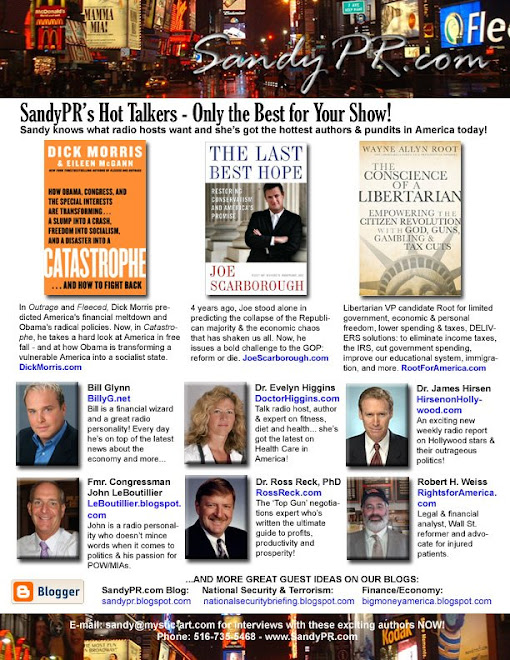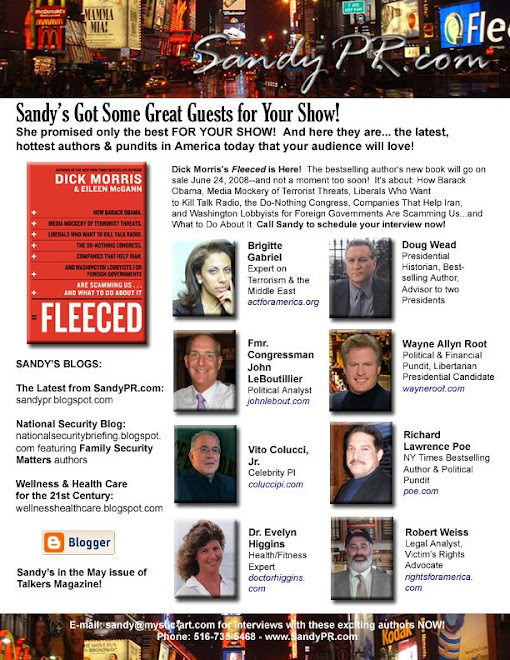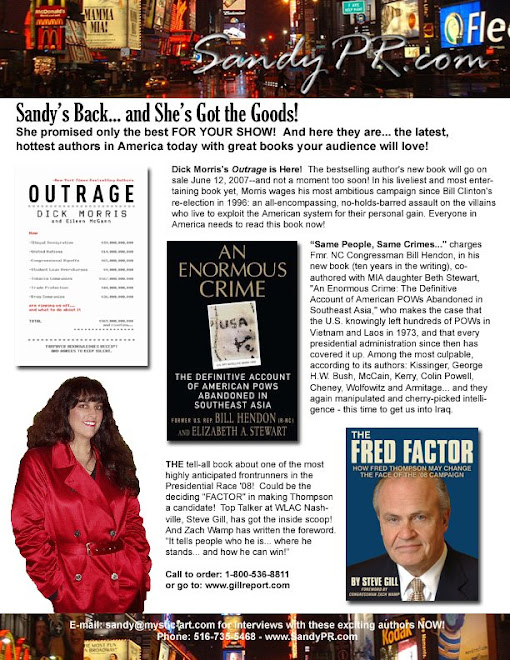Dick Morris's 'Armageddon'
Reveals Hillary Secrets, Trump's Strategy
Set for Release June 28,
2016, Book Now!
Armageddon is the ultimate battle between good and evil. Now, in their powerful and timely new book Armageddon: How Trump Can Beat Hillary, authors Dick Morris and Eileen McGann reveal a surprising political game plan that could change the outcome of the 2016 elections.
"Make no mistake about it,
Trump faces an uphill battle," Dick Morris says. "With a liberal
media biased in Hillary's favor, demographic trends favoring younger and ethnic
voters - and some Republicans at war with their own nominee - Trump must take a
different approach. He can still win and defeat Hillary," Morris argues in
Armageddon.
Few know and understand Hillary and
Bill Clinton better than Dick Morris. For over 20 years, Dick served as their
personal political adviser and trusted confidante. Dick knows their strengths
and weakness... and their darkest secrets.
For the first time, he reveals
Hillary's secrets in Armageddon - and explains why Trump must ignore the
traditional GOP playbook to make her the issue and defeat her once and for
all. Morris believes the 2016 election will be the most decisive in
history. America can go down the road of socialism, "Obama's third
term," or take a path of economic and spiritual resurgence - one that
makes us truly great again.
In Armageddon, Dick Morris
outline his attack plan on Hillary:
- She is a "compulsive,
pathological and serial liar" that must be exposed - he reveals
the evidence.
- Hillary lost any claim to
"commander-in-chief" after Benghazi - new details show she
covered up her role.
- She will once again put America into
another needless war.
- She is "obsessively secret and
paranoid" - Morris reveals never before known details that show
her to be the "controller in chief."
- She is very vulnerable to criminal
prosecution right now - and may be the target of impeachment hearings almost
from day one of any Hillary presidency.
But Morris says attacks on Hillary alone won't defeat
her. Donald Trump needs a masterplan - a grand strategy to avoid the GOP
mistakes of 2008 and 2012. Dick Morris gives solid advice to Trump that
reveals:
- How Trump can woo 8 million white
voters who failed to show up for Romney in 2012;
- Why terrorism may prove to be Trump's
ace in the hole - and why he must expose Hillary and Obama's efforts to
let terrorists into the U.S.;
- The fact that Obamacare is not a dead
issue - and how Trump can use it get low-income voters who have been
hurt by this socialist program;
- Why immigrants and union voters may
prove to be Trump's biggest allies;
- Hillary's vulnerabilities with China,
Iran, Israel and Mexico, and much more; and
- Trump's secret strategy for black
voters: he can win a bigger proportion than any Republican using this
one issue.
On Tuesday, November 5, 2016, American voters will make a
momentous decision. They will decide whether or not this great country will
remain a free market, constitutional democracy. The stakes could not be higher.
If Hillary Clinton is elected president, it will mean the end of the America we
know and love.
In Armageddon, Morris offers a manual on how the
forces of good can win this battle. Whether you support or oppose Donald Trump,
you need to get this book and share it with friends and family. And Republicans
need to stop playing by the old rules of the game. Those rules don't work -
they elected Barack Obama twice. Obama has changed America in fundamental ways.
Now, in Armageddon, Morris shows Hillary's opponents how they can
take advantage of her many vulnerabilities - to elect a president who wants to
make America a great nation again.






